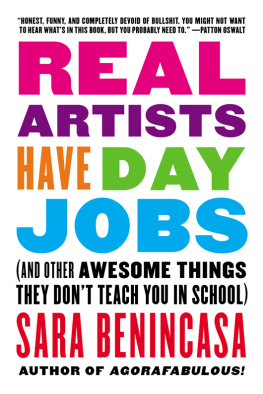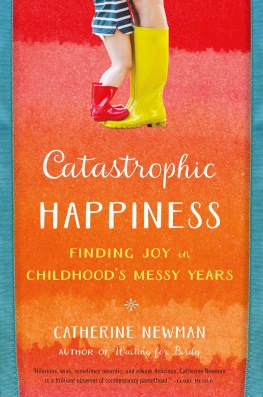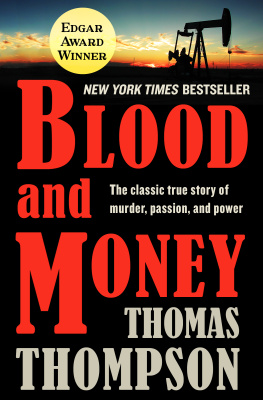Library of Congress Cataloging in Publication Data
Edelhart, Mike
Getting from twenty to thirty.
1. Young adultsUnited StatesPsychology.
2. Autonomy (Psychology) 3. Life skillsUnited States. I. Title.
HQ799.7.E32 | 1983 | 305.2350973 | 82-21007 |
ISBN 978-1-59077-293-5
Distributed by
NATIONAL BOOK NETWORK
Copyright 1983 by Michael Edelhart
All rights reserved. No part of this book may be reproduced or transmitted in any form or by any means without the written permission of the publisher.
M Evans
An imprint of Rowman & Littlefield
4501 Forbes Boulevard, Suite 200
Lanham, Maryland 20706
www.rowman.com
DESIGN BY RONALD F. SHEY
Manufactured in the United States of America

The Twenties: Expanding and Changing
THE CHANGES THAT mark our twenties affect us in every role we play in society and touch us in the more intimate confines of our private feelings and emotions. We arent growing in just one way or one direction. We are expanding everywhere at once, like a balloon.
During our twenties we are at our peak mentally and physically. We have left behind the rules and strictures of adolescence, and have yet become tied down by the choices that have been made, as are people in their thirties, forties, and fifties.
At work the decade of the twenties is our time for testing what weve learned and what we think we want to do. It is the time in which we make valuable contacts, earn credentials, develop skills and support networks. We enter the decade with a headful of dreams about our careers and capabilities; by the time the twenties are over we have tasted failure and success, have measured our competence in the harsh adult world, and know where we want to go in our work and how we can get there.
Our sense of money grows enormously during the twenties. We are still basically the coddled children of our parents and schools when we enter the decade; money is something other people give us and we spend. But quickly we come to learn how much effort stands behind every dime and dollar. Money changes into a measure of our value. By the end of the decade we view money in proportion to ourselves. It has a different value for each individual, a different role in every life.
On the social scene the twenties are the time we move from the heavily patterned crony-hood of our teens toward unique and varied personal relationships defined by our own rules and needs. We find a style that is tailored to us rather than to the crowd of our peers.
Among family members the twenties are a period of shifting positions. The entire pattern of family behavior has to be rechoreographed with you, as a company member, recast from a child into an adult. Family members tend to circle one another during the twentiesdodging and feinting, approaching and retreating as they gauge the danger of their opponent. Eventually, when the battle is finished and the smoke clears, a new relationship emerges.
The twenties bring deep change inside us as well. During this decade we lay the foundation for developing a rich personal sense. We begin to pinpoint what we really want in life and how to get it. We develop our first lasting self-image. We learn who we want to love and what we crave from our partners. The process is something like cooking an egg: At the beginning everything is transparent and fluid, and by the end the individual has defined form. Like the egg, we may not cook evenly, but ultimately everything comes together.
A FOUNDATION FOR SURVIVAL
For many the twenties are a period of scrambling for survival, of learning the ways of the world and attempting to adapt to them. Everything around us seems to be happening so quickly, and with such excitement, that in the end were left wondering how we ever made it through at all.
Karen Lewis recalls going through her twenties in the late sixties and early seventies. Perhaps because I turned twenty in 1968, when all the anti-Vietnam and counterculture activities were at their peaks, and turned thirty when all of those activities were at a standstill, I characterize my twenties as years of moral development. The issue I remember thinking most aboutmore than career, romance, and so forthwas what sort of life values I would have. Vietnam was, for me, a moral issue. The civil rights movement was likewise. And whether I was going to work for love or work for money was exactly (although somewhat naively) the same sort of question.
Almost everyone I knew at the time was dealing with the same sort of issues. And today, fourteen years after we all turned twenty, were dealing with the consequences of decisions we made then. One guy I knew was a lawyergraduated top of his class at Columbia Law School, Law Review, all sorts of honors. When he got out of law school all the top corporate law firms tried to court him. They wanted him to work for them. If he had accepted their offers hed probably be a partner today, making well over $100,000 a year.
Instead, he went to work for legal servicesdefending people who couldnt afford to hire a fancy law-firm lawyer. Last year he was earning somewhere in the high $20,000s and desperate because his wife was expecting their first baby and they were living in a tiny one-bedroom apartment. Now, with all the federal cutbacks it looks like hell lose his job and he may actually have to go work for a firmif hes lucky enough to get hired. They dont look kindly on thirty-four-year-olds who have no corporate experience. Did he make a mistake when he got out of law school? I dont know. On some level he probably would say yes, but I made similar choices and I still feel ambivalent.
When I began working I was very young and ambitious. Before Id had my twenty-fifth birthday I was an executive in middle management. I was really hot stuff. When I met the man I was going to marry, who was a writer, we decided to travelto spend time living in all sorts of places and both do our own writing. Basically, we decided to get off the corporate track and have some adventure. Im sure the spirit of the times was an important factor in our decision.
Now, lots of people I used to work with are in very high-powered positions, although were just making do. We work hard, do things we really care about, and live in crowded quarters with our children. Did we make a mistake?
I guess that in some ways I did make a mistake, but I honestly dont regret what I did in my twenties. I learned during those years that I was happier working for myself than working for other people. And I really developed a kind of independence that many of my friends whove been on a straight work path for the last fourteen years just dont have. One of them got fired a few weeks ago and shes scared to death. Whats she going to do? On some level I came out of my twenties knowing that I could always get by on my talents; and even though I dont earn quite as much as some people, theres something liberating about the independence I feel. The experience of going through my twenties shaped my sense of self.
During our twenties we are happier, freer, less inhibited, and also probably more ignorant than we ever have been or ever will be again. Adolescents still live in a world where parents rules and values dominate. Adults have learned skills, have made certain choices that define their lives, have chosen a value system for themselves. Our world is different from both. We must reject the illusions of the older generation and create our own sense of life. In the process, though, we toss away the only view weve ever known and face the twenties having to devise a replacement. We start the twenties from scratch.












